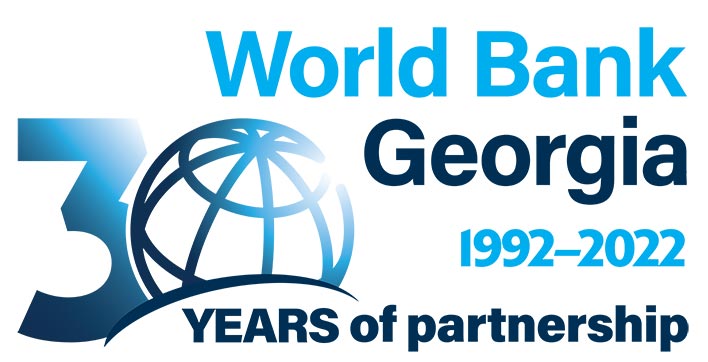WB: Georgia’s economic growth to slow amid impacts of war in Ukraine
The war against Ukraine and sanctions on Russia are hitting economies around the globe, with emerging market and developing countries in the Europe and Central Asia region expected to bear the brunt, says the World Bank’s Economic Update for the region, released today.
It said the region’s economy is now forecast to shrink by 4.1 percent this year, compared with the pre-war forecast of 3 percent growth, as the economic shocks from the war compound the ongoing impacts of the COVID-19 pandemic. This would be the second contraction in as many years, and twice as large as the pandemic-induced contraction in 2020.
The World Bank expects Ukraine’s economy to shrink by an estimated 45.1 percent, “although the magnitude of the contraction will depend on the duration and intensity of the war. Hit by unprecedented sanctions, Russia’s economy has already plunged into a deep recession with output projected to contract by 11.2 percent in 2022.”
“The magnitude of the humanitarian crisis unleashed by the war is staggering. The Russian invasion is delivering a massive blow to Ukraine’s economy and it has inflicted enormous damage to infrastructure,” said Anna Bjerde, World Bank Vice President for the Europe and Central Asia region. “Ukraine needs massive financial support immediately as it struggles to keep its economy going and the government running to support Ukrainian citizens who are suffering and coping with an extreme situation.”
According to the report, “the war in Ukraine is likely to also adversely impact the Georgian economy through reductions in trade, tourism and remittances, as well as elevated commodity prices.”
It continued: Oil and food prices have increased sharply since the beginning of the war due to uncertainty and disrupted supplies from Russia and Ukraine. These impacts will cause a slowdown in growth, with growth initially forecast at 5.5 percent for 2022 expected to drop to 2.5 percent. The baseline outlook envisions growth recovering from 2023 onward, as easing monetary policy, recovery of tourism, and the restoration of economic links are partly offset by the gradual withdrawal of fiscal stimulus.
“While we foresee a slowdown in growth for 2022, Georgia is well placed to manage the economic fallout of the war due to reasonable fiscal and external buffers and a credible macro-financial framework. The banking sector is entering the crisis in relatively strong shape, government deposits are sizeable, and debt is likely to remain sustainable,” said Sebastian Molineus, World Bank Regional Director for the South Caucasus. “What is needed now is to continue with prudent economic management, provide support to affected businesses and households while reinvigorating the structural reforms to improve productivity, improve human capital and address consequences of climate change.”
